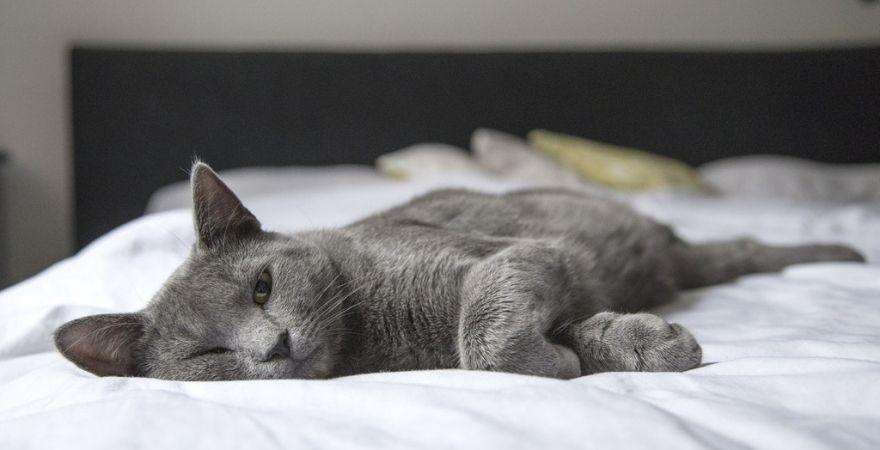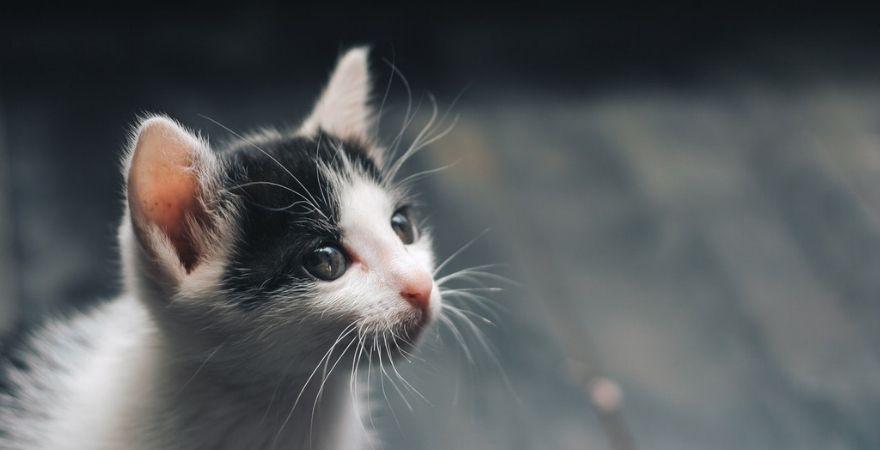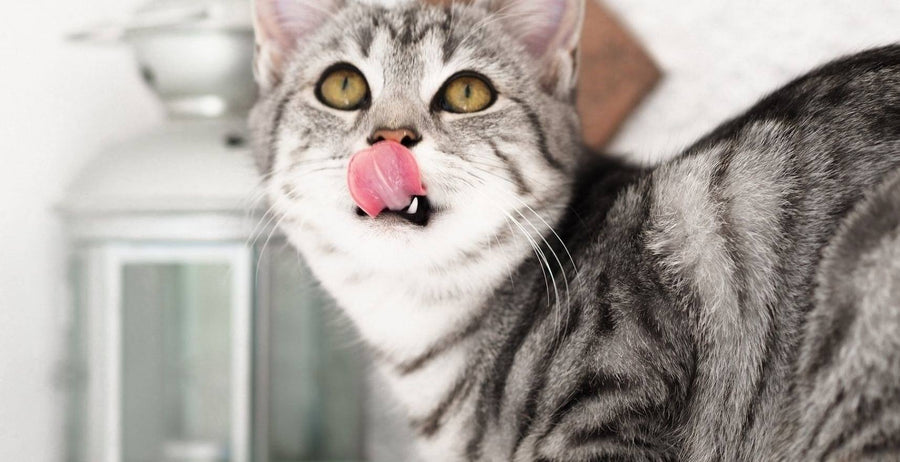The need to shed a few pounds is a challenge to which many of us can relate. Weight loss is hard! Even equipped with weight loss apps, fitness trackers, diet plans, and a vast range of healthy eating alternatives, we humans typically struggle to shift the number on the scale without serious focus. Little wonder then that so many cats struggle to maintain optimum weight.
As unpleasant as the weight loss journey can be, when it comes to our cats, this is a fundamental issue. According to VCA Hospitals, as little as two pounds of excess weight can expose your cat to a range of health risks, including diabetes, heart disease, and joint injury.
But how do you know if your cat has a bit too much pudge? And what can you do about it? Let’s explore these questions and layout a few concrete strategies you can use to get your chonky chum back to a lithe and graceful perfect weight.
When Is Your Cat’s Weight a Real Problem?
Ah, the six million dollar question. Here’s the tricky thing: Cats are naturally athletic. Even carrying a bit of a tummy around with them, more often than not, a younger cat will happily frisk, jump, and cavort through life. It’s all too easy to miss the telltale cues that your cat has a growing weight problem.
Pets WebMD offers three quick and easy tests you can use to gauge your cat’s weight objectively. First, squeeze your cat’s rib cage. If you feel ribs, chances are your cat is doing fine. Next, take a critical look at your cat’s profile. A cat in his or her prime will naturally taper from their belly to their back half. If you don’t see that athletic narrowing, your hefty hug-muffin could afford to lose a few pounds. Finally, watch your cat closely when it’s running about. Do you see a bit of a tummy area jiggling about? It’s cute, but again, you’re seeing a sure sign your cat needs to trim down.
If you have any doubts, talk to your vet about your cat’s weight as part of your next routine checkup appointment. Your vet can give you a clear sense of what to look for and how to address it.
Losing Weight the Right Way
OK, so let’s assume your cat needs to lose weight. First, a quick reality check: The real challenge isn’t weight loss! After all, you could radically lower your corpulent cat’s calorie intake. Sure, they’d be miserable, but they’d lose weight. But this is a disastrous approach, not just because it’ll make your cat seriously unhappy, but also because, just as with humans, crash dieting places a lot of strain on the body.
The real challenge is helping your cat lose weight in a way that doesn’t compromise their health and happiness. To do that, you’ll need to have three strategies up your sleeve.
1. Set goals
The same rule that applies to humans here applies to cats. Wherever possible, going slow is much better than going fast. The goal shouldn’t simply be to get thinner as quickly as possible. The goal should be to reach a healthy target weight in a healthy amount of time.
Consult your vet to identify a healthy weight range, and work to gradually achieve that, regularly weighing in along the way to gauge your progress.
2. Manage food intake
Once your goals are set and your vet has helped you hone in on your cat’s goal weight, inevitably, it’s time to get down to the hard graft of gradually improving your cat’s diet. This is going to be different for every cat, but here are three cardinal rules for a healthy cat diet.
Focus on lean protein - Not all proteins are created equal. Think lean proteins if you’re looking for the perfect feline fuel source. And become informed! PetMD’s Nutrition Center is a useful resource to learn more about what your cat should be eating and why.
Track portion size - Keeping close track of how much you’re feeding your cat is crucial. This is easier if one person in your house is responsible for feeding, but it may require a more systematic approach if multiple people administer the cat crunchies. Remember, cats are sneaky, and they will lie about whether they’ve been fed!
Be careful with treats - Treats are fine in moderation, but you need to be mindful — especially if you occasionally treat your cat to human food. These kinds of foods should be given occasionally. Treats should be rare and delightful surprises and not daily diet fare.
3. Introduce more physical activity
Then there’s the inevitable flip side to the weight loss coin. Yep, you guessed it — physical exercise. It’s an excellent idea to increase playtimes with your cats, ensuring they get a good 20 minutes of vigorous play every day (their health and age permitting).
If you’re running empty on ideas, introduce a new toy. Most cats are hypersensitive to sound and texture, so any new and novel trinket that crinkles, rustles, and flitters is sure to spark off a calorie-burning frenzy of cavorting, pouncing and leaping about.
Making Weight Loss More Fun
One often unexpected risk of enforcing a weight loss regime on your cat is that it can affect your relationship. Constant mewling for extra food, your cat experiencing that disconcerting sight of its snack bowl being taken away, and the added slow-burning physical stress of dealing with a calorie deficit can all add up to unpleasant emotional strain for both your cat and you.
It’s hard to avoid altogether, but you can lessen the impact by making sure you build fun and nurturing care into the weight loss process. Here are a few strategies you might like to try:
- Pamper your cat in non-food ways - Work on slowly shifting rewards away from a quick treat to intensive grooming and cuddles. Cats are food-driven, but most cats love affection too and appreciate being fussed over. Don’t we all!
- Make treats a game - We already mentioned that treats should be used with moderation. The fun little side benefit of making treats a bit more unusual is that a coveted morsel suddenly becomes an exciting and day-brightening moment. Play with hiding the treat away in a kong. Try shifting the food to a different and out of the way location. This simulates the hunting process and reinforces your cat/human bond. And if you are going to use treats, make sure to make them as healthy as possible.
- Introduce variety - One fact almost every cat wrangling veteran will agree on is that cats enjoy variety. A new flavour of food is exciting to many cats. Instead of thinking of quantities of food as your way of showing love, find fresh, healthy foods they can enjoy. Bring the fun back into food as a welcome distraction from the less pleasant aspects of living on a slight calorie deficit.
Weight Loss Needn’t Be a Miserable Process!
Let’s be real here. We all know that the process of losing weight is the pits. It’s not fun for humans, and it’s every bit as unpleasant for our cat companions. The key, ultimately, is to keep our eyes on the prize. A healthy weight cat stands a good chance of living longer, staying more active and happy throughout every chapter of its life. And that’s worth struggling for!
CHECK OUT OUR HEALTHY GOODIES

DAILY MULTI HEALTH BITES
A single chew that contains all the vitamins, minerals and acids your kitty needs to stay happy healthy and purring. Help your senior kitty feel younger and your younger cats stay zippy!
Scrub and shine dental powder
The powder that keeps your cats teeth clean 'hands free'! Simply sprinkle into your kitties kibble and let it get to work. The Scrub and Shine Dental Powder helps keep your cats teeth sparkly clean and plaque free
Mark is an avid animal lover, with a long history of caring for critters of a cattish persuasion, particular those facing a few extra life challenges. Right now, he's busy taking care of three over-energetic bengals (Sock monkey, Twister and Slinky) along with a scrappy orange ex-stray named Nerf.




1 comment
This is my first time buying from your site! My Starboy is in renal failure per my vet! He does not like the science diet food! I have 6 other cats besides him! My senior cat is almost 17 years old! My question is will the food etc I just bought hurt them if they should eat it? Thank you!